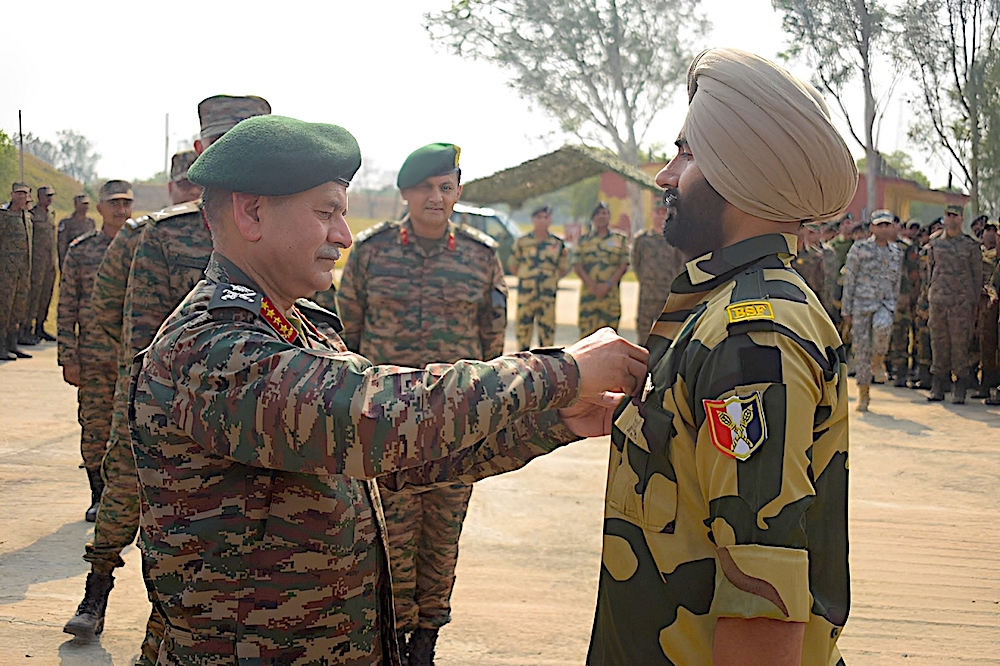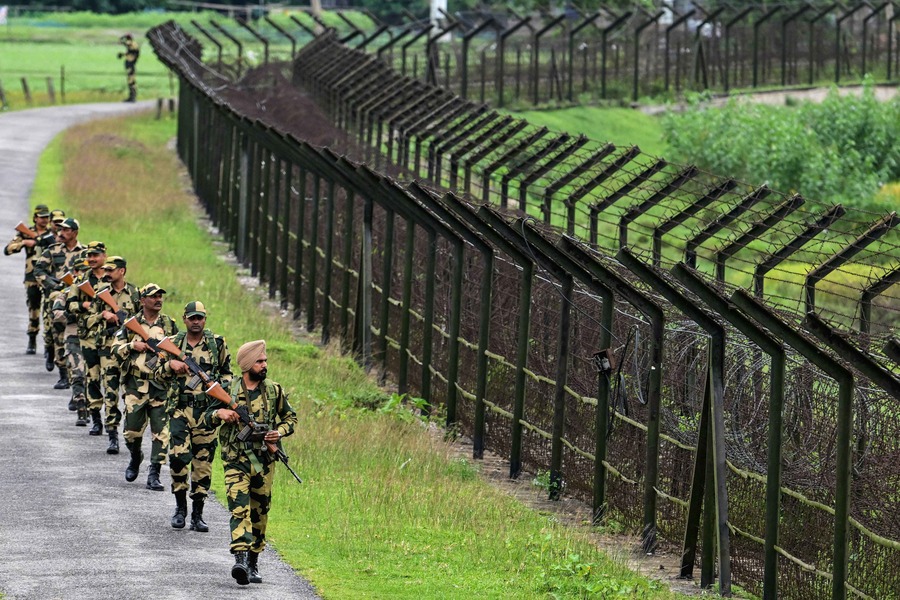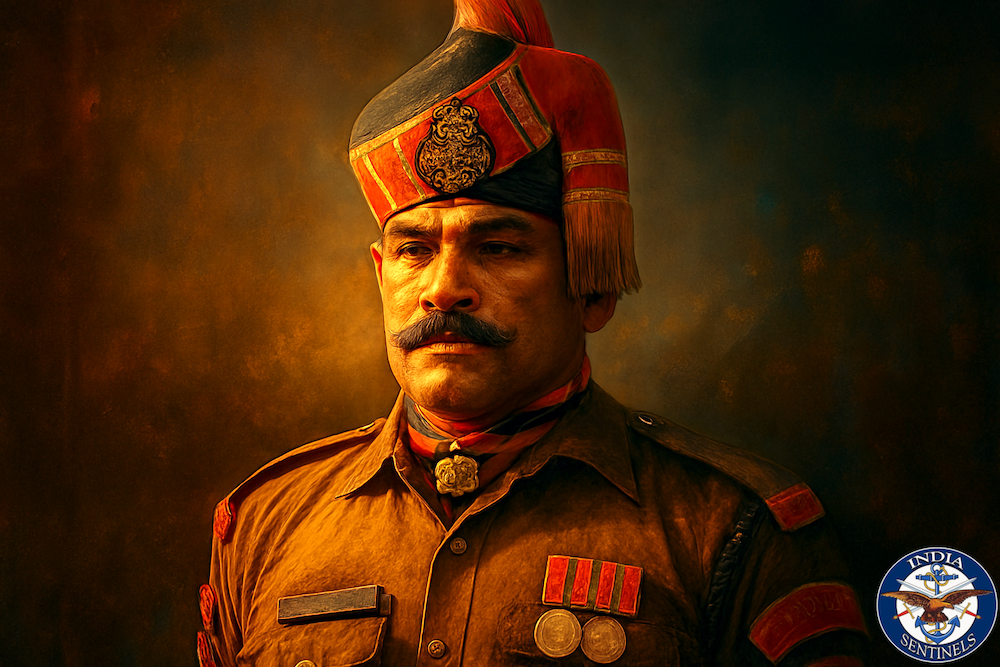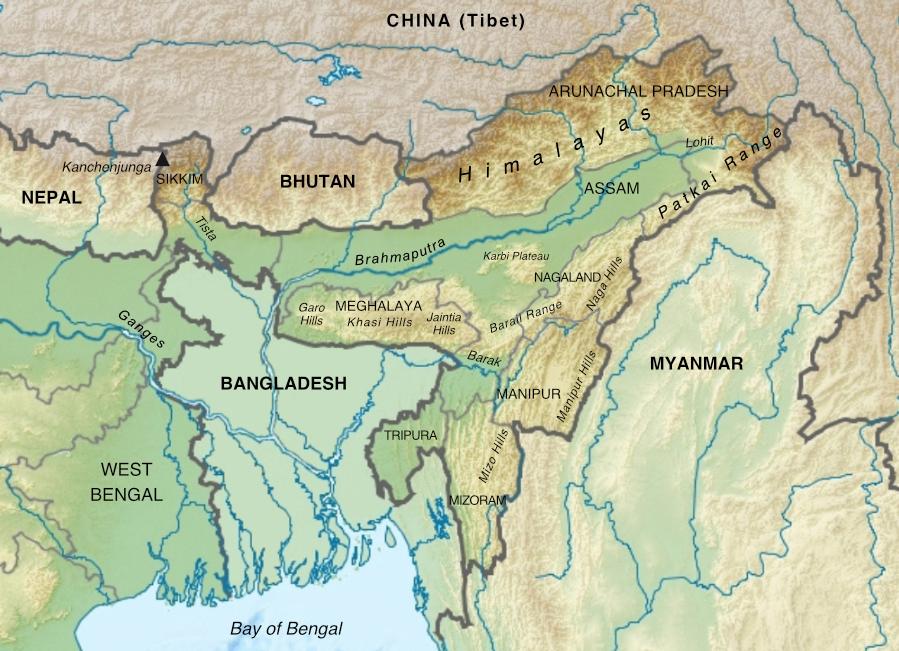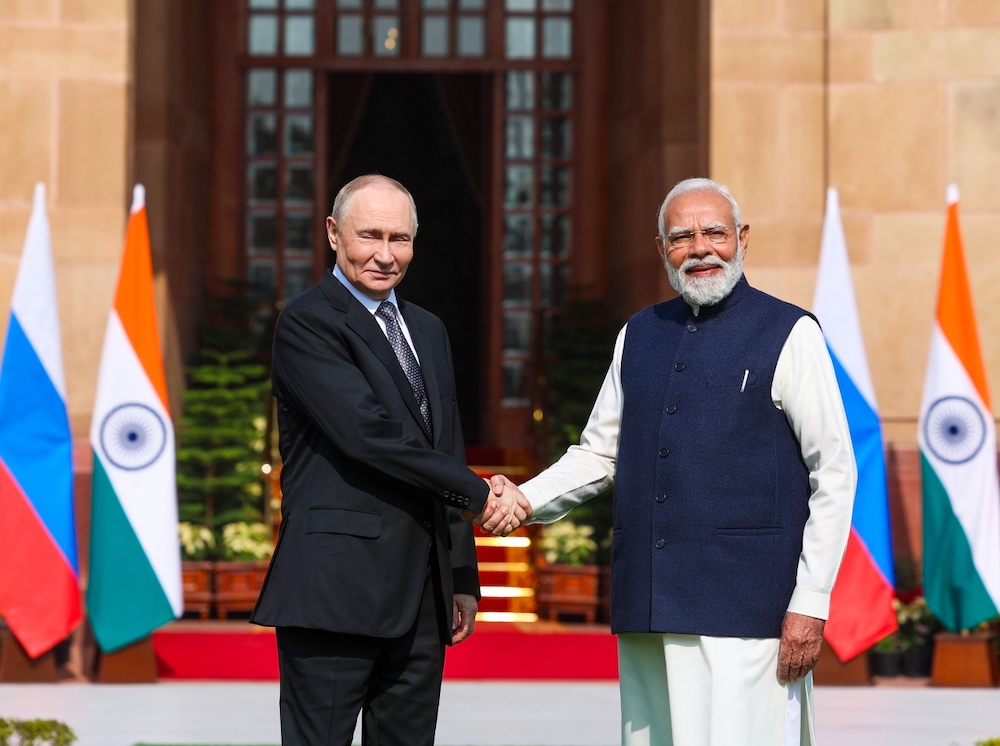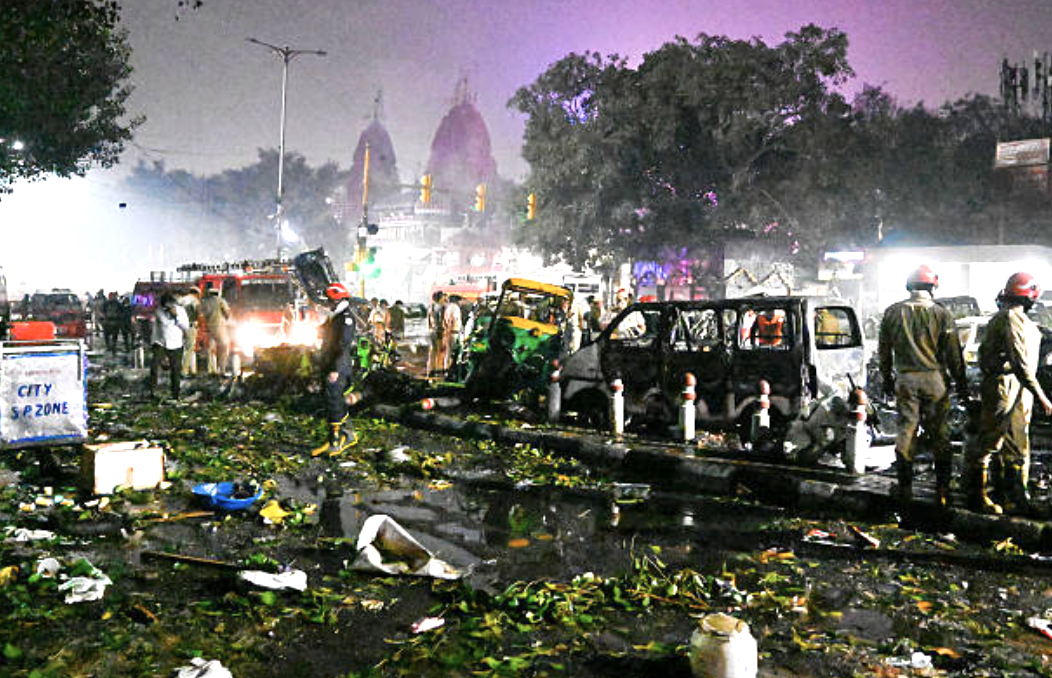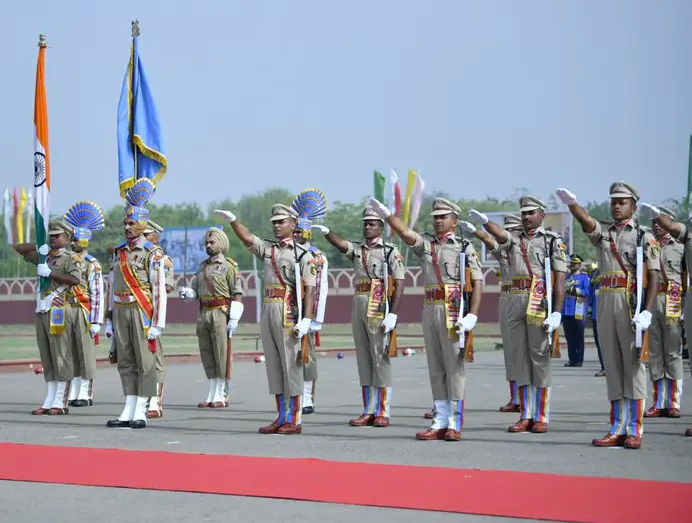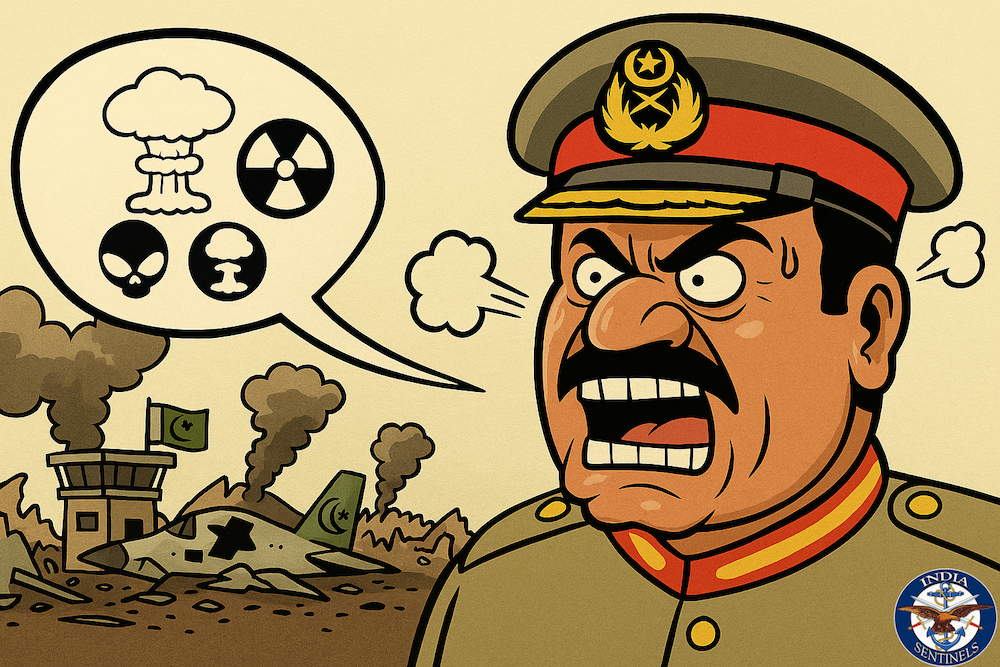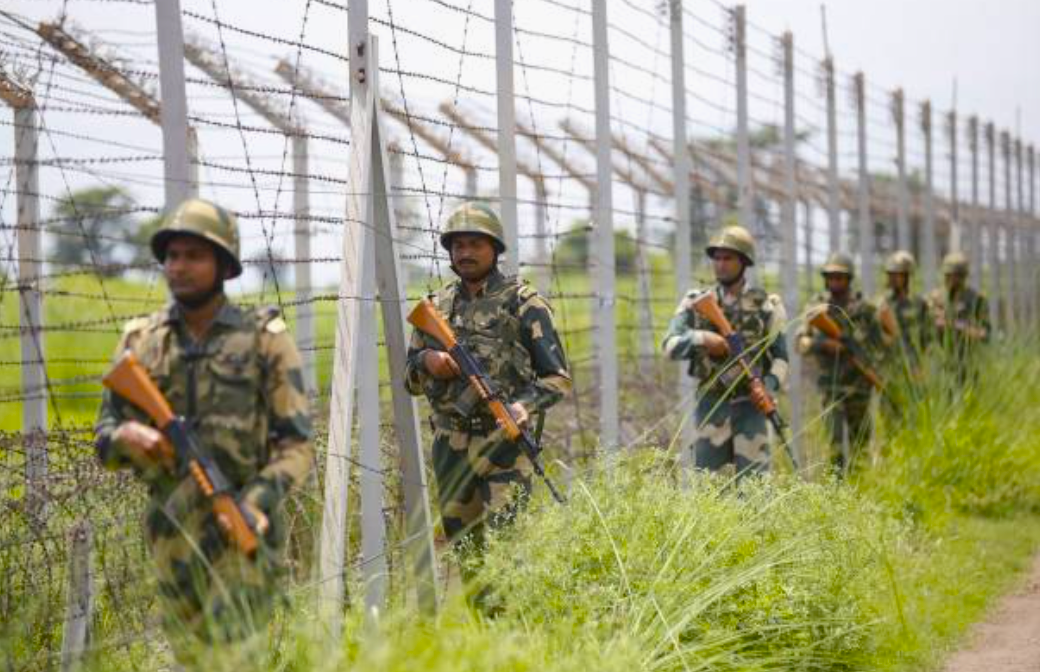 A BSF patrol near an international border fencing. (File photo for representation.)
A BSF patrol near an international border fencing. (File photo for representation.)
“Leadership is the process of influencing people by providing them with purpose, direction, and motivation while you are operating to accomplish a mission and improve the organization.”
~ A learning module on army leadership in University of Akron.
The border-guarding central armed police forces are organized and patterned on the infantry’s organizational model. This model was adopted to enable the border-guarding CAPFs to accomplish mandated peacetime border-guarding, warfighting, and fulfil internal security demands professionally. There is no denying the fact that to have professional organizations capable of accomplishing multifarious roles, leadership must be professional, groomed, and nurtured within a professional organizational environment.
Leadership is an intrinsic and complex concept, and it is not about passing directions and giving orders. Professional competence of leadership at all levels of the command hierarchy makes a vast difference in how organizations function, perform professionally, and fulfil mandated roles effectively and efficiently.
In border-guarding CAPFs, the middle-level leadership, which is restricted up to the battalion-level, is groomed and nurtured within the professional organizational environment and is well versed with the organizational needs of operations and administration. It can be safely said that there are no major professional issues affecting the middle-level leadership, except how to make it more robust and responsive to troops in the ever-changing operational environment and develop trust with troops.
Read also: Time govt empowers BSF cadre officers lead force at highest level
The problems arise where a mixed hierarchy of leadership of integral cadre officers and “deputationists” starts in command hierarchy from the rank of deputy inspector general and above. Therein brews up a conflict, which is not visible and palpable on the surface to any outside observer. This is inherent in the organizations’ professional functioning, which affects the organization in all facets negatively, including organizational ethos and conventions.
It is a fact that professionalism gets diluted when a person with no experience in border-guarding and wartime intricacies, which takes a lifetime to learn, is inducted at higher echelons of command without following any professional protocol. This affects professionalism and leads to dissatisfaction and frustration among those who despite a lifetime of experience in the organization feel ignored and let down since they do not get timely opportunities in terms of promotions and assignments.
There is no denying the fact that the government has the prerogative and right to decide various policies in terms of promotions and deputations for all organizations, and border-guarding CAPFs are no exception to the rule. However, the government needs to make inductions in a way to enhance professionalism and not dilute it. It needs to make professional competence a mandatory requirement for officers posted in top positions in border-guarding CAPFs. Doing that will enhance professionalism, make inductees an integral part of organizational hierarchy, enhance acceptability, and boost their morale and motivation. This in turn will percolate downwards along the chain of command, thus enhancing competence and efficiency.
Read also: IPS officers vs CAPF officers: Unseemly tug of war
What could be the professional protocol for inductees on deputation is the government’s prerogative. The most important aspect is to assess suitability for induction and make inductees undergo mandatory higher professional courses on border guarding and operations and tactics of warfighting after induction in respective border-guarding forces. Once inducted, they must serve in border-guarding CAPFs until the end of their service life.
This, if implemented, would practically amount to the creation of an Indian Police Service cadre for the border-guarding CAPFs. The same protocol can be adopted for other CAPFs.
The present practice of “familiarization” and “orientation” serves no purpose and needs to be dispensed with. In its sixth report, the National Police Commission in Paragraph 44.5 says: “In this context, it would be relevant to note some of the criticisms that are advanced against a rigid career service like the IPS. It has been said that a preoccupation with a career-structure generalist neglects professionally qualified specialist. In this background the IAS [Indian Administrative Service], IPS, and other Class 1 services appear to be elitist, amateurish, and lacking in professional knowledge and competence.”
Read also: Efficiency of CAPFs suffering from ‘glass ceiling’ effect
In Paragraph 44.35 of the same report, the National Police Commission says: “We recommend that two central IPS cadres should be constituted one for paramilitary organizations, like the BSF [Border Security Force], CRPF [Central Reserve Police Force], ITBP [Indo-Tibetan Border Police], etc, and another for such organizations, such as IB [Intelligence Bureau], CBI [Central Bureau of Investigation], RAW [Research & Analysis Wing], etc. We are of the view that such central cadres can be constituted within the framework of Article 312 of the Constitution.”
There is a saying that it is never too late to initiate corrective measures. What the NPC recommended in its sixth report regarding the creation of a separate officer cadre for paramilitary forces can be revived for border-guarding forces by incorporating dynamic changes as dictated by the professional needs of border-guarding and warfighting.
Empower IPS officers for deputation into border guarding forces and make them undergo professional courses at the level of higher command in the academies of the respective forces. Allot them field formations to command for a minimum period of two to three years. Staff posting must be only considered after the completion of a command tenure at a formation.
Read also: Leadership of security forces is failing nation to control Maoists
Also, deputations must be at the level of inspector general, additional director general, and director general. The deputation posts of inspector general and above must be filled through promotions from the post of deputy inspector general according to the laid-down quota.
Leadership is not about sidestepping to fill in the gaps in command. It is a serious business, which is all about professionalism, morale, motivation, integrity, and acceptability. It is not about giving orders but ensuring willing obedience through acceptability based upon the trust and confidence of those under command.
Such a new system will enhance professionalism, regimentation, and camaraderie in the border-guarding forces. It will integrate two diametrically opposite cadres into one integral cadre. The government needs to give the new system a chance by implementing it. It will also be a step towards implementation of NPC’s sixth report, albeit in a diluted form.
Disclaimer: The views expressed in the article are the author’s own and don’t necessarily reflect the views of India Sentinels.
Follow us on social media for quick updates, new photos, videos, and more
Twitter: https://twitter.com/indiasentinels
Facebook: https://facebook.com/indiasentinels
Instagram: https://instagram.com/indiasentinels
YouTube: https://youtube.com/indiasentinels
© India Sentinels 2022-23

